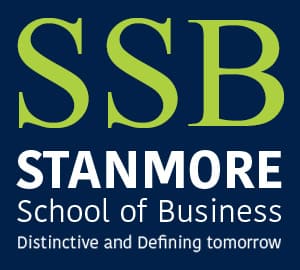Real-Life Impact: Professional Certificate in Biotechnology Careers Alumni Insights in the UK Job Market
-- viewing nowBiotechnology Careers in the UK Job Market: Unlocking Opportunities Discover the Real-Life Impact of a career in biotechnology, with our Professional Certificate program designed to equip you with the skills and knowledge to succeed in this dynamic field. Learn from industry experts and alumni who have successfully transitioned into biotechnology careers, gaining insights into the latest trends, technologies, and job market demands.
2,173+
Students enrolled
GBP 140
GBP 202
Save 44% with our special offer
About this course
100% online
Learn from anywhere
Shareable certificate
Add to your LinkedIn profile
2 months to complete
at 2-3 hours a week
Start anytime
No waiting period
Course details
This unit focuses on the application of biotechnology in research and development, including the use of genetic engineering, gene editing, and bioprocessing techniques to develop new products and therapies. • Cell and Tissue Culture
This unit covers the principles and techniques of cell and tissue culture, including the use of cell lines, primary cells, and tissue explants for research and bioproduction. • Bioprocessing and Fermentation
This unit explores the principles and applications of bioprocessing and fermentation, including the use of microorganisms, enzymes, and cell cultures for the production of bioactive compounds and bioproducts. • Genomics and Gene Editing
This unit delves into the principles and applications of genomics and gene editing, including the use of next-generation sequencing, CRISPR-Cas9, and other gene editing tools for the development of new therapies and products. • Biotechnology in Healthcare
This unit examines the application of biotechnology in healthcare, including the use of biologics, gene therapies, and regenerative medicine for the treatment of diseases and disorders. • Biotechnology in Industry
This unit explores the application of biotechnology in industry, including the use of biocatalysts, bioplastics, and biofuels for the production of sustainable products and energy. • Intellectual Property and Biotechnology
This unit covers the principles and applications of intellectual property law in biotechnology, including patent law, copyright law, and trade secret law. • Regulatory Frameworks in Biotechnology
This unit examines the regulatory frameworks governing biotechnology in the UK, including the Human Tissue Act, the Human Fertilisation and Embryology Act, and the Medicines and Healthcare products Regulatory Agency (MHRA). • Biotechnology Entrepreneurship
This unit focuses on the principles and applications of biotechnology entrepreneurship, including the development of business plans, funding strategies, and marketing campaigns for biotechnology startups. • Biotechnology and Society
This unit explores the social and ethical implications of biotechnology, including the use of biotechnology for human enhancement, the ethics of gene editing, and the impact of biotechnology on society and the environment.
Career path
| Biotechnology Research Scientist | Conducts research and experiments to develop new biotechnology products and processes. |
| Regulatory Affairs Specialist | Ensures compliance with regulatory requirements for biotechnology products and processes. |
| Clinical Trials Coordinator | Coordinates clinical trials for biotechnology products and ensures data quality and integrity. |
| Biomedical Engineer | Designs and develops medical devices and equipment using biotechnology principles. |
| Science Writer | Communicates complex biotechnology information to the public through writing and editing. |
| Biotech Consultant | Provides expert advice to biotechnology companies on product development and commercialization. |
Entry requirements
- Basic understanding of the subject matter
- Proficiency in English language
- Computer and internet access
- Basic computer skills
- Dedication to complete the course
No prior formal qualifications required. Course designed for accessibility.
Course status
This course provides practical knowledge and skills for professional development. It is:
- Not accredited by a recognized body
- Not regulated by an authorized institution
- Complementary to formal qualifications
You'll receive a certificate of completion upon successfully finishing the course.
Why people choose us for their career
Loading reviews...
Frequently Asked Questions
Course fee
- 3-4 hours per week
- Early certificate delivery
- Open enrollment - start anytime
- 2-3 hours per week
- Regular certificate delivery
- Open enrollment - start anytime
- Full course access
- Digital certificate
- Course materials
Get course information
Earn a career certificate

